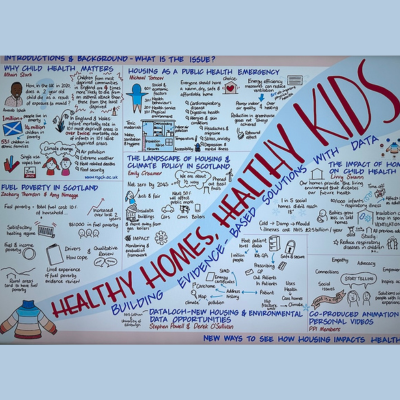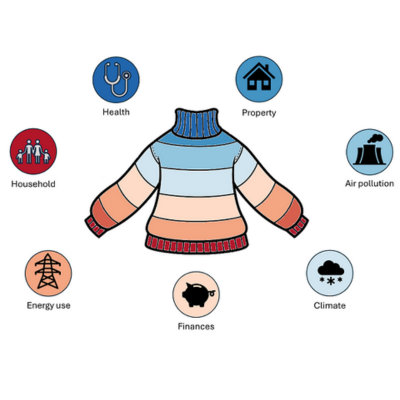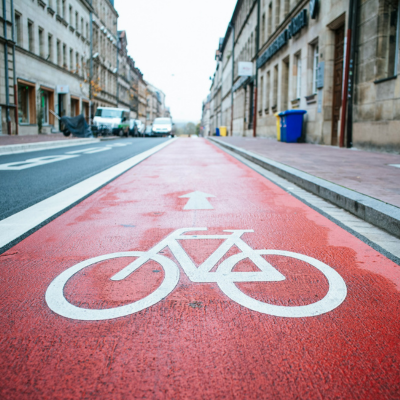As the cost of living crisis sweeps the UK, UrbanTide is exploring how to use data and AI technology to lessen its impact.
uEco is an innovative data driven project that links up diverse datasets and uses AI to speed up the delivery of home retrofit solutions.
By making this new technology available throughout the UK and beyond, we can accelerate the transition to becoming an energy-efficient nation. The goal of the uEco project is two-fold: lessen the impact of fuel poverty for more than 8 million UK households and reduce household CO2 emissions.

Retrofitting the leakiest homes in Europe
The UK has some of the leakiest homes in Europe. Household energy is responsible for a fifth of all global CO2 emissions and 26% of total emissions in the UK.
To reach net-zero targets by 2050, the government has proposed an ambitious but critical plan to identify and deliver targeted retrofitting to all UK's 29 million housing stock. This will help insulate our homes, reduce emissions and energy consumption and lessen the impact of fuel poverty for 8m+ households as the cost of living crisis continues to impact UK households.
UrbanTide has been awarded a grant through Innovate UK’s Design Foundations competition to develop uEco as a solution to accelerating the UK’s housing retrofit ambitions.
The funding was awarded to businesses capable of delivering a new technology innovation that aligns closely with the UN's Sustainable Development Goals. uEco responds directly to as many as 11 of the 17 SDGs as a product that's both people and planet-centric by design.

How uEco works
uEco builds on UrbanTide’s uZero product insights, which uses data and AI to identify and target energy-efficiency support to fuel-poor households. By integrating anonymised smart meter system data with cross-sector datasets, uZero helps target solutions that save energy and reduce household CO2.
uEco builds upon these innovative foundations and will seek to develop new identification models and test new prototypes that can pinpoint households that would most benefit from Energy Efficiency Programmes.
We are currently working closely with Friendhood Studio on the development stage of the product. This involves running workshops with energy suppliers, networks and net zero hubs and their wider delivery partners to identify which new data sources would help them identify and target retrofit solutions as efficiently as possible.
Friendhood Studio are experts in delivering strategic design and development. The workshops we are currently running will help us establish where the high-value insights lie and how we can integrate them into the future development of the platform.
Alex Reece, the co-founder of Friendhood Studio, has said:
"As a studio focused on impactful design for social and planetary good, we’re excited to work with UrbanTide on the uEco project.
We’ll be leading the engagement programme, bringing together a variety of teams across the energy sector to find opportunities for AI and data insight to create a positive impact in a challenging and evolving landscape. Using this insight, we’ll be developing what a planet-centred design approach looks like alongside supporting digital design on new products and services."
Planet Centred Design Approach and its importance
Planet Centred Design is a design approach that prioritises the health of the planet and its ecosystems by considering the environmental impact of products, services, and systems throughout their entire life cycle. It is already being explored by Defra (the Department for Environment, Food and Rural Affairs) and other leaders within the build environment. In practice, Planet Centred Design involves embracing systemic thinking (Design Council, 2021) that acknowledges the complexity of interconnected systems and the environmental knock-on effects of our decisions. Within our energy systems this means considering the long-term impact of immediate decision-making while supporting stakeholders to navigate complexity in more strategic and evidence-based ways.
The goal is to create sustainable solutions that meet human needs and contribute to the restoration and regeneration of the natural world (ARUP, 2020), often by using sustainable materials, reducing waste and emissions, and designing for longevity and circularity.
In this project, uEco will, for the first time, explore how combining unique data sources will enable new innovation too;
- Identify households in a completely novel way and which households would most benefit from the scale-up of Energy Efficiency Programmes.
- Propose a Planet Centred intervention approach to maximise energy reduction toward Net Zero whilst reducing fuel poverty.
- Ultimately enable multiple programmes to scale and grow more efficient supply chains nationwide and beyond.






